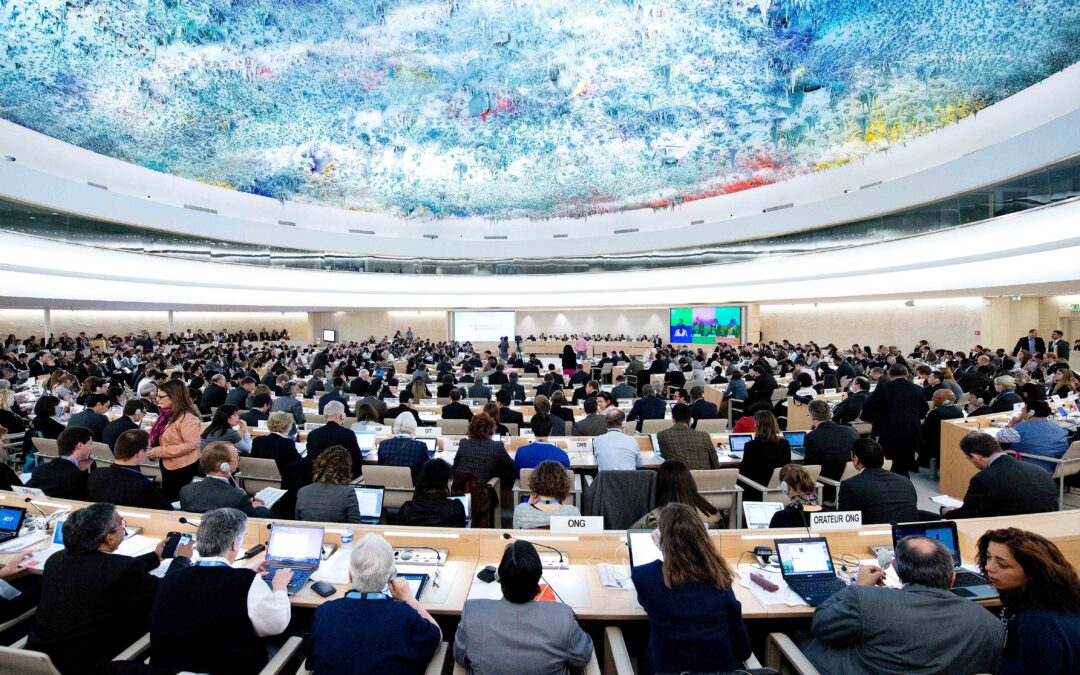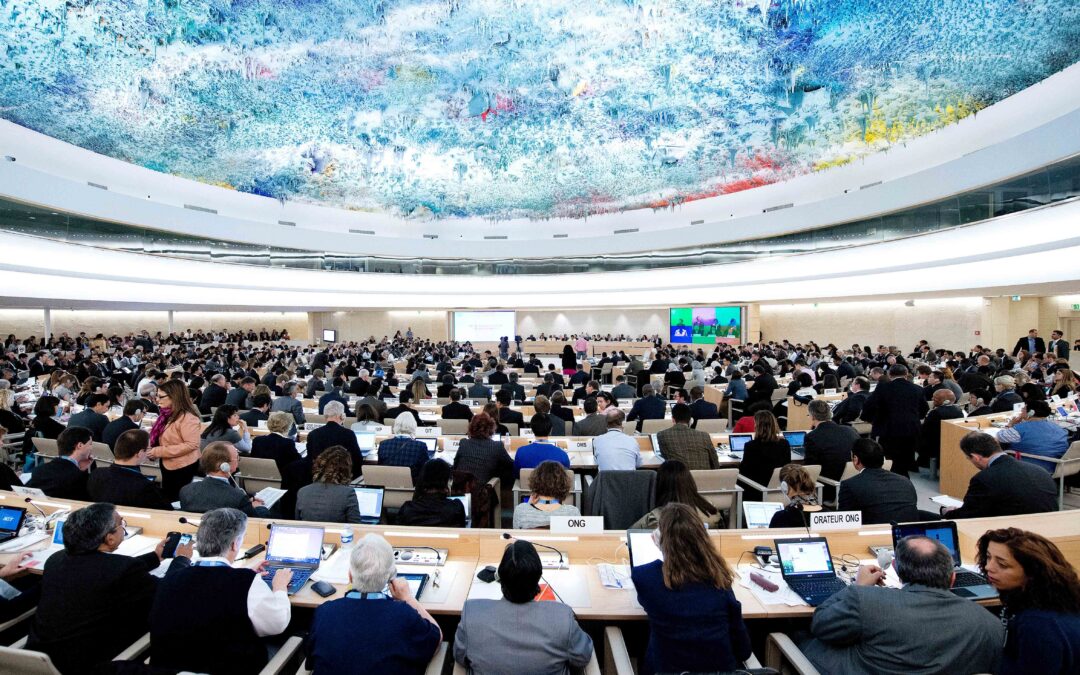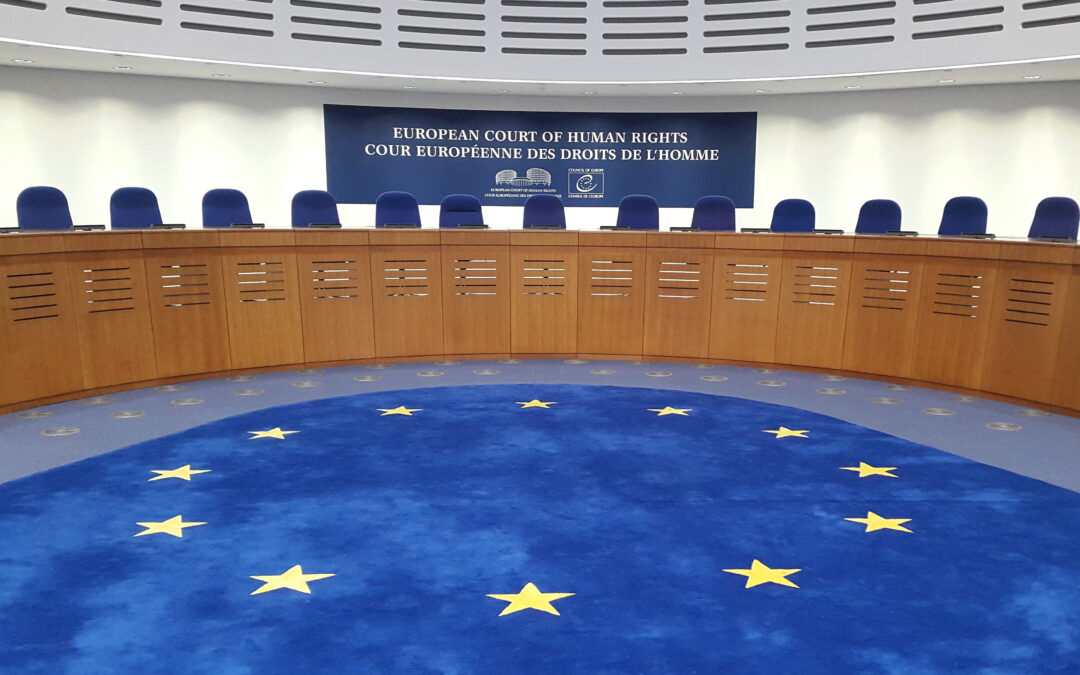
Jul 5, 2021 | Incidencia
Hoy, la CIJ pronunció una declaración oral en el diálogo interactivo acerca del informe de la Alta Comisionada de las Naciones Unidas para los Derechos Humanos sobre la situación de los
derechos humanos en la República Bolivariana de Venezuela.

Jul 5, 2021 | Advocacy, Non-legal submissions
The ICJ today addressed the UN Human Rights Council in the Interactive Dialogue on the report of the UN High Commissioner for Human Rights on the situation of human rights in the Bolivarian Republic of Venezuela.

Jun 30, 2021 | News
The Polish government should immediately reinstate two judges removed from their posts in line with the newly released judgment of the European Court of Human Rights, said the International Commission of Jurists (ICJ) today.

Jun 22, 2021 | Comunicados de prensa, Informes, Noticias, Publicaciones
La CIJ, en un informe que presentó hoy, afirmó que el Poder Judicial de Venezuela se ha convertido en una herramienta para que el Poder Ejecutivo controle políticamente al país, en lugar de ser un mecanismo de defensa del Estado de derecho en el país.
El informe Jueces en la cuerda floja de 58 páginas, documenta el deterioro de la independencia judicial en Venezuela debido al control y la influencia política sobre el Poder Judicial, y debido al rol que ha desempeñado el Tribunal Supremo de Justicia (TSJ) en el quebrantamiento de la independencia de los jueces en todo el país.
“La justicia es un derecho humano y es un derecho fundamental para la protección de otros derechos. Sin las garantías esenciales de independencia e imparcialidad de los jueces, no tenemos justicia. Hoy, en Venezuela, el derecho a la justicia no está garantizado, en la medida en que no tenemos un sistema de jueces independientes e imparciales”, dijo Carlos Ayala, vicepresidente de la CIJ.
El Tribunal Supremo de Justicia, controlado desde hace mucho tiempo por el Poder Ejecutivo, ha gestionado el colapso del Estado de derecho en el país, ya que más del 85% de los jueces ocupan cargos provisionales, están sometidos a presiones políticas, y reciben presiones directas para que emitan decisiones judiciales en favor del gobierno y en contra de personas defensoras de derechos humanos y disidentes políticos.
“La captura política del TSJ ha colocado a los jueces en la cuerda floja en Venezuela, haciéndolos incapaces de defender el Estado de derecho, proveer la rendición de cuentas por las numerosas y graves violaciones de derechos humanos que ocurren en el país, y proteger los derechos del pueblo venezolano”, dijo Sam Zarifi, Secretario General de la CIJ.
De esta manera, la CIJ ha recomendado a Venezuela despolitizar el Poder Judicial en general y en particular el Tribunal Supremo de Justicia. El informe también establece una serie de recomendaciones específicas para lograr estos objetivos, en particular:
- Avanzar en los procesos de nombramiento de jueces de acuerdo con las disposiciones constitucionales y las normas internacionales;
- Establecer mecanismos independientes y autónomos dentro del Poder Judicial para la selección de jueces y para el ejercicio de las funciones disciplinarias;
- Reforzar la transparencia y la responsabilidad del sistema judicial.
Asimismo, la CIJ ha hecho un llamado a las autoridades venezolanas para que cumplan con el derecho internacional de los derechos humanos y los estándares internacionales relacionados con la independencia judicial, así como con las decisiones y recomendaciones de diferentes órganos del Sistema de Naciones Unidas y del Sistema Interamericano de Derechos Humanos, y para que permitan el acceso al país de procedimientos y mecanismos internacionales de derechos humanos que contribuyan a la rendición de cuentas y al restablecimiento del Estado de derecho.
La CIJ también insta al Consejo de Derechos Humanos de la ONU a mantener un mecanismo adecuado para la rendición de cuentas de las graves violaciones de derechos humanos ocurridas en el país, hasta que los fiscales, los tribunales y las cortes venezolanas sean capaces de investigar, procesar y juzgar eficazmente dichas violaciones con independencia e imparcialidad.
Contacto
Carolina Villadiego Burbano, Asesora Legal para América Latina de la CIJ. email: carolina.villadiego@icj.org
Venezuela-Judges on the tightrope-Publications-Reports-Thematic reports-2021-SPA

Jun 22, 2021 | News, Publications, Reports, Thematic reports
Venezuela’s judiciary has become a tool for political control of the country by the Executive branch rather than a defender of the rule of law, said the ICJ in a report launched today.
The 55-page report Judges on the Tightrope documents the undermining of judicial independence in the country, due to the political control or influence on the judiciary, and because of the role the Supreme Court of Justice (SCJ) has played in undermining the independence of judges around the country.
“Justice is a human right and it is a fundamental right for the protection of other rights. Without the essential guarantees of the independence and impartiality of judges, we do not have justice. In Venezuela today, the right to justice is not guaranteed, to the extent that we do not have a system of independent and impartial judges,” said Carlos Ayala, ICJ’s vice president.
Venezuela’s Supreme Court of Justice, long controlled by the country’s Executive branch, has overseen a collapse of the rule of law in the country, with some 85 percent of judges holding provisional posts that subject them to political pressure, and courts receiving direct pressure to return verdicts in support of the government and against human right defenders and critics of the government.
“The political takeover of the SJC has placed judges on a tightrope in Venezuela, rendering them unable to defend the rule of law, to provide accountability for the many gross human rights violations in the country, or to protect the rights of the Venezuelan people”, said Sam Zarifi, ICJ’s Secretary General.
The ICJ recommended Venezuela to depoliticize the judiciary in general, and specifically the Supreme Court of Justice. In addition, the report sets a series of specific recommendations to achieve these goals, in particular by:
- Advancing with appointment processes for judges in accordance with constitutional provisions and international standards;
- Establishing independent and autonomous mechanisms within the judiciary for the selection of judges and for exercising of disciplinary functions; and
- Strengthening transparency and accountability in the justice system.
The ICJ called on Venezuelan authorities to comply with international human rights law and international standards related to judicial independence, as well as with the decisions and recommendations that different bodies in the United Nations and Inter-American Human Rights System have made, and allow access to the country for international human rights procedures and mechanisms that will contribute to accountability and the restoration of the rule of law.
The ICJ also urged the UN Human Rights Council to maintain a mechanism to address proper accountability for gross human rights violations until the Venezuelan prosecutors, courts and tribunals are capable of effectively investigating, prosecuting and judging with independence and impartiality those violations.
Contact
Carolina Villadiego Burbano, Latin American Legal and Policy Adviser, email: carolina.villadiego(a)icj.org
Download
Venezuela-Judges on the tightrope-Publications-Reports-Thematic reports-2021-ENG









